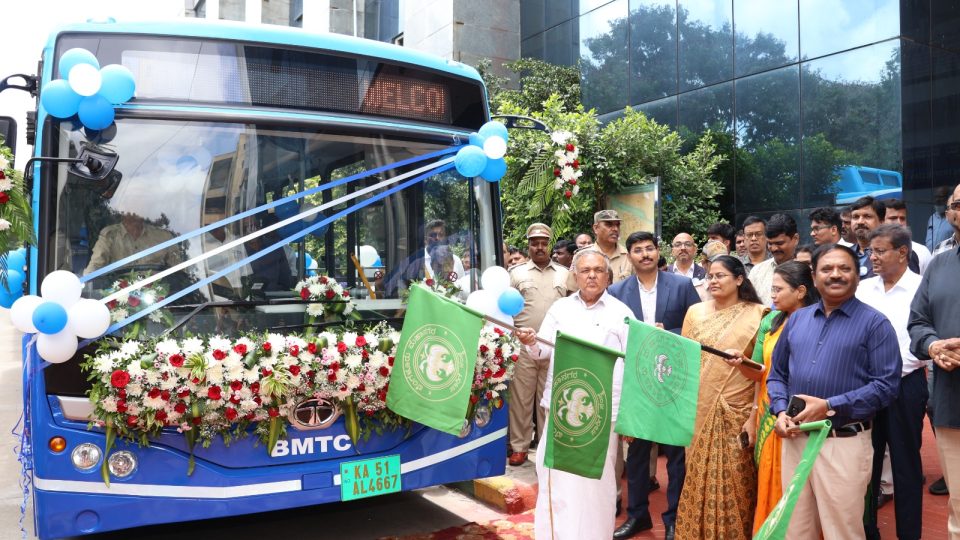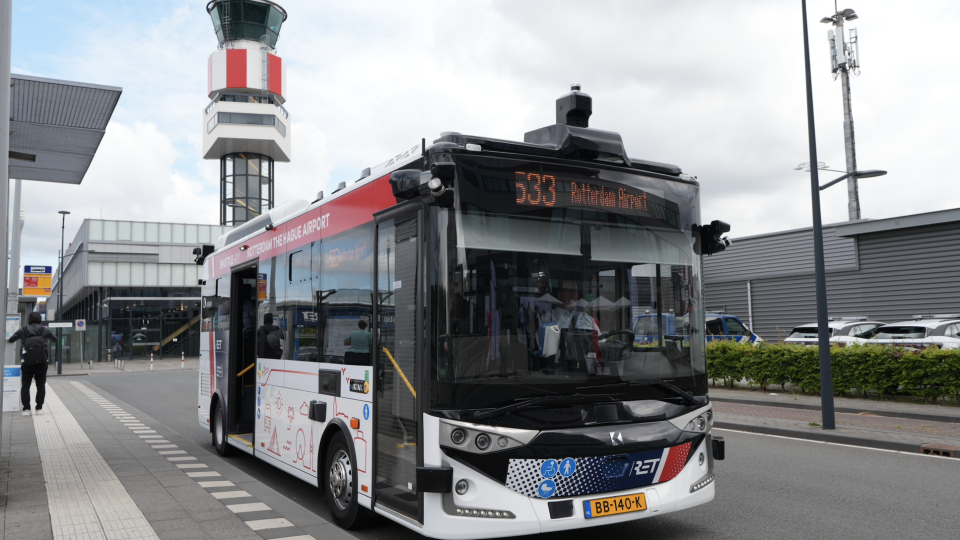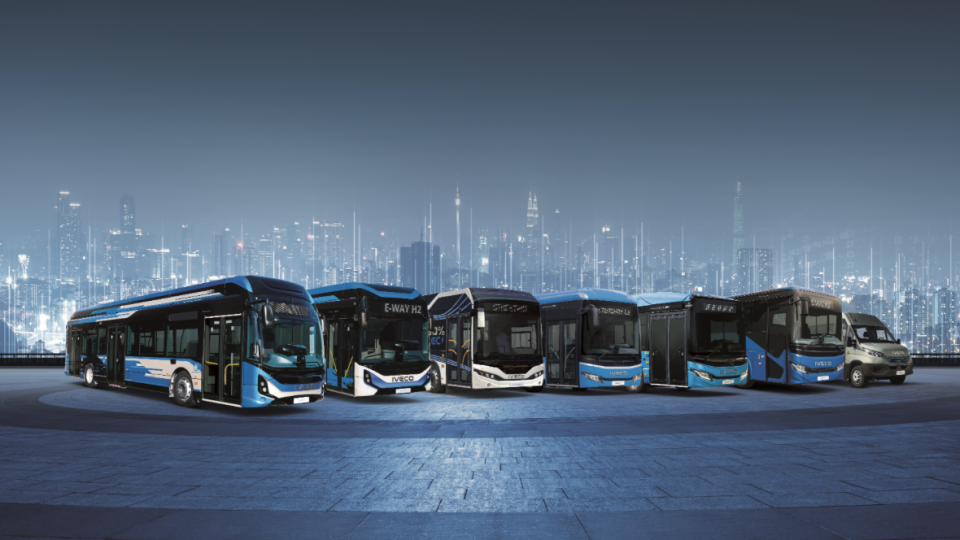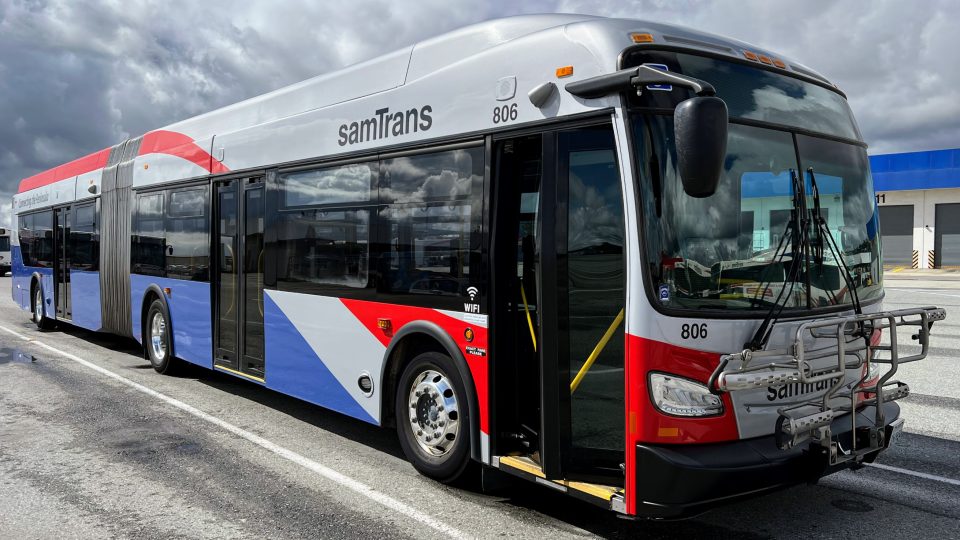Largest Heliox charging infrastructure project in Germany implemented in Wiesbaden
Dutch company Heliox powers a total of 6,3 MW in the city of Wiesbaden. In a project granted by ESWE to Heliox in June 2019, the first batch of 56 chargers is now operational for new Daimler eCitaro buses (the very first with solid-state batteries), Heliox points out. At the Gartenfeldstraβe depot in Wiesbaden, space […]
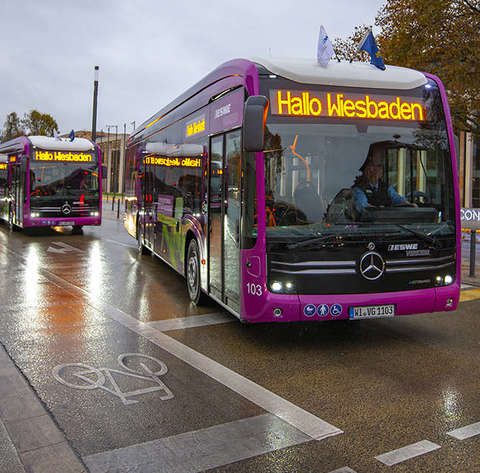
Dutch company Heliox powers a total of 6,3 MW in the city of Wiesbaden. In a project granted by ESWE to Heliox in June 2019, the first batch of 56 chargers is now operational for new Daimler eCitaro buses (the very first with solid-state batteries), Heliox points out.
At the Gartenfeldstraβe depot in Wiesbaden, space is limited in the depot, and clever solutions were implemented to give the e-fleet flexibility. Charging dispensers have been installed at regular intervals in between columns, to make charging plug and play easy.
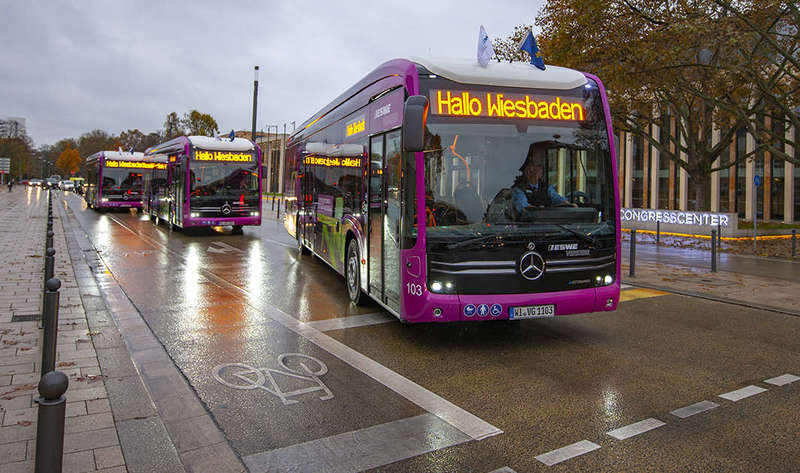
Wiesbaden charging infrastructure, from Heliox
Due to restricted space, the charging pillars enclosures have been adapted to fit narrow access at the depot. Heliox explains it has simplified access to CCS chargers by moving the interface and the control button to the front of the pillars.
Communication between the charging system and the depot management system has also been changed. Charger connectivity is improved making it possible to begin earlier pre-conditioning of the bus.
The Wiesbaden project is Heliox’s largest implementation of charging infrastructure for public transport in Germany, although not the only one which has been implemented since the end of 2020: Darmstadt and Bonn are also well under way, Heliox highlights.
Heliox in Wiesbaden, with ESWE
Sebastian Winner, Business Development Manager DACH, explains “The implementation in Wiesbaden shows Heliox’s capability to be flexible and to come up with solutions that help ESWE Verkehr Wiesbaden to improve the uptime and charging speed of their e-bus fleet. We are very happy that we have been given the opportunity to contribute to the electrification of public transport in Wiesbaden.”
Sebastian Aring, Project Manager at ESWE Verkehr in Wiesbaden adds, “Together with Daimler Busses and IFY, the partnership resulted in getting the optimum when it comes to keeping our bus depot flexible and operational at the same time”.




